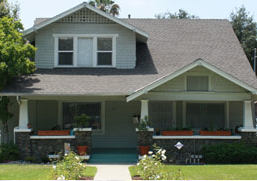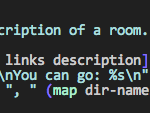In the last couple of days I’ve seen lots of stories about a “Home” for unwed mothers in Tuam, Ireland that operated from 1926 to 1961. I use scare quotes around the word “Home” on purpose, as you’ll understand if you follow the various links above.
What struck me was that the horrors of the “Home” in Tuam were ultimately due to charity gone horribly wrong. The goal, to support unmarried mothers and their babies, is a good one. Treating them like human refuse is not. As a bit of a palate cleanser, then, I want to write about charity done well; and specifically, about a charity Jane and I have supported for years.

It’s called Elizabeth House.
Things are different in modern day Los Angeles than they were in Ireland in the first half of the 20th century. A woman who becomes pregnant out of wedlock is no longer a shame to her family, to be shunned or hidden away. Many couples wait to get married until after the first child is born. Grandparents are getting all too accustomed to raising a grandkid because the child’s mother is unmarried and either working or incapable. Unmarried women who become pregnant have many more choices than they did then (not least of which, alas, is the on-going slaughter of the innocent).
But nevertheless, there are mothers and mothers-to-be who do not have family, who do not have a job, and who have no home to live in; and it is the goal of Elizabeth House to help them. Per their website, Elizabeth House exists
…to provide shelter, hope and support to homeless pregnant women and their children, addressing the physical, emotional, spiritual, and economic needs in a nurturing atmosphere.
Elizabeth House began as, literally, a house in a neighborhood of Pasadena. Mothers can live there during their pregnancy and the beginning of their baby’s life, and receive the food and healthcare they need. In the meantime, the staff helps them to learn not only what they need to know about having and caring for a healthy baby, but also the skills they need to get a job and make a home for themselves, so that they will not return to homelessness.
Since 1993, 228 women and 326 babies have gone through the program at Elizabeth House. As such, it’s not a grand final solution to the social problem of unwed mothers. It isn’t a quick fix. Rather, as Mother Teresa of Calcutta and St. Therese of Lisieux were fond of saying, it’s about doing little things with great love. Elizabeth House can only help a few women at a time. But those women and their children are treated with dignity, as beloved children of God, not as human refuse, and they know that they are loved.
Care does not end when the mother and her child or children leave the House. The final goal, after all, is to help these women to avoid returning to homelessness; and if they had family or other resources they likely wouldn’t have been homeless to begin with. So the staff remain in contact with them, and continue to help them as needed.
This is not just theory; this is what living the Gospel looks like. It’s possible.












